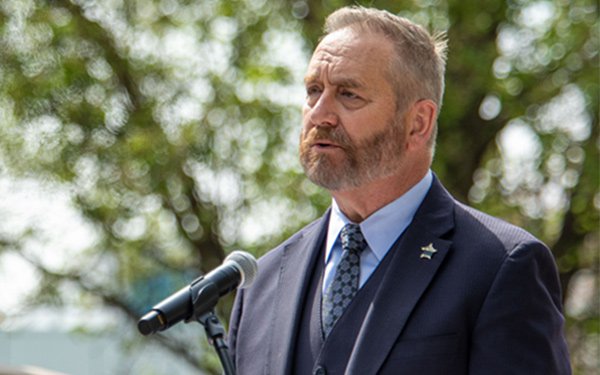
Ohio Attorney General Dave Yost this week
appealed an order that blocks the state from enforcing a social media law that would have restricted teens' ability to use tech platforms.
Yost has not yet yet filed substantive arguments with
the 6th Circuit Court of Appeals, which will preside over his appeal.
The law was permanently enjoined last month by U.S. District Court Judge Algenon Marbley in the Southern District of Ohio,
who wrote that the statute “fails to pass constitutional muster and is constitutionally infirm.”
The Parental Notification By Social Media Operators Act, passed in 2023, would have
prohibited some web services with social functionality from allowing minors under 16 to create accounts or access content, without parental permission. The statute generally covers operators of sites
with social features (such as allowing users to create profiles and interact) and that are aimed at minors under 16 or “reasonably anticipated” to be accessed by teens under 16.
advertisement
advertisement
The law exempts ecommerce sites that allow people to post reviews, and “established and widely recognized” media outlets that report news.
The tech industry group NetChoice sued
over the law, arguing it was unconstitutional for several reasons -- including that it would have restriced minors' First Amendment right to express themselves and access speech. The organization also
said the law wrongly restricted speech based on subject matter, arguing that the exceptions for e-commerce and news sites shows the law is based on content, and therefore violates the First
Amendment.
Yost defended the statute, arguing it furthers the government's interest in protecting minors from harms allegedly associated with social media use -- including “addiction
caused by user-engagement features” such as design features like automatically playing videos, and mental health issues like depression and anxiety.
Marbley rejected that argument,
ruling that the state failed to prove that social platforms caused harms to teens. Instead, Marbley wrote, research presented by Yost examined correlations between social media and harm to teens, not
causation.
The judge added: “The record also does not show that the full range of 'thousands' of websites covered by the Act cause harms to minors sufficient to suppress those minors'
access to protected speech.”
Other states including Arkansas, New York, Maryland, Mississippi, Utah, Tennessee, Texas and California have passed statutes that either restrict teens'
use of social media, or regulate companies' ability to serve content to teens. Many of those laws are currently facing court challenges, and so far judges have temporarily blocked all or parts of
those laws in Arkansas, Mississippi, Utah, Texas and California.